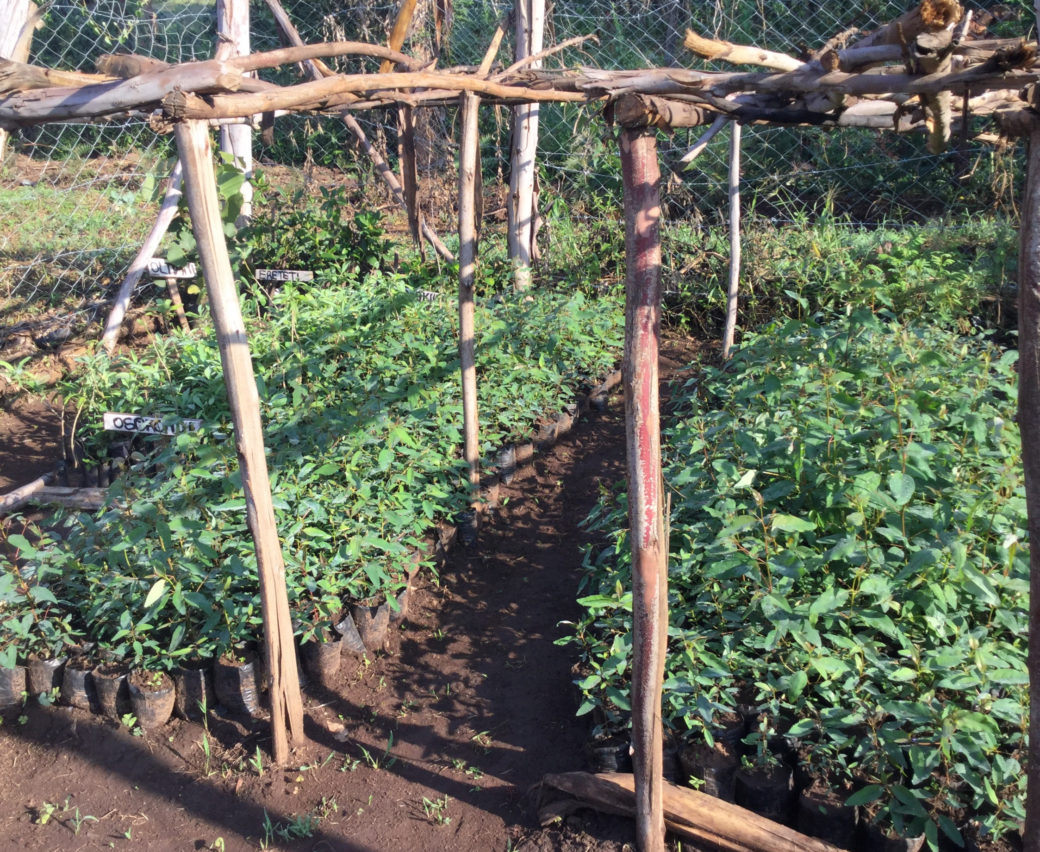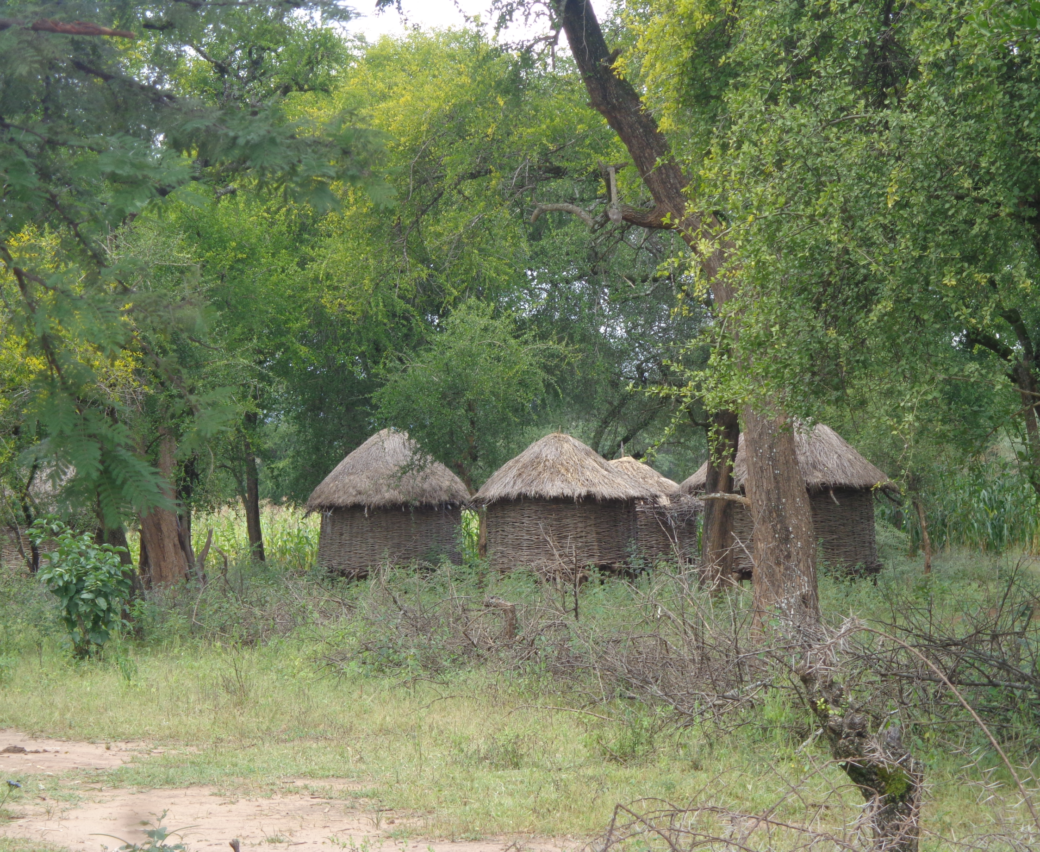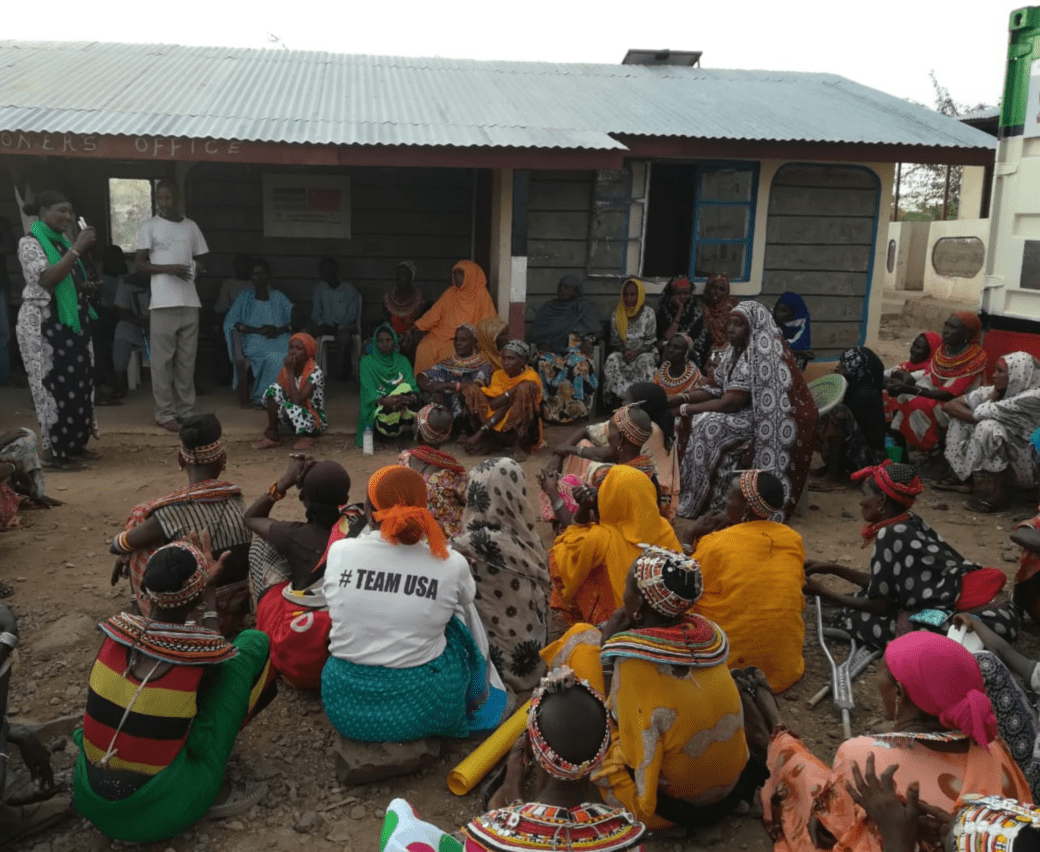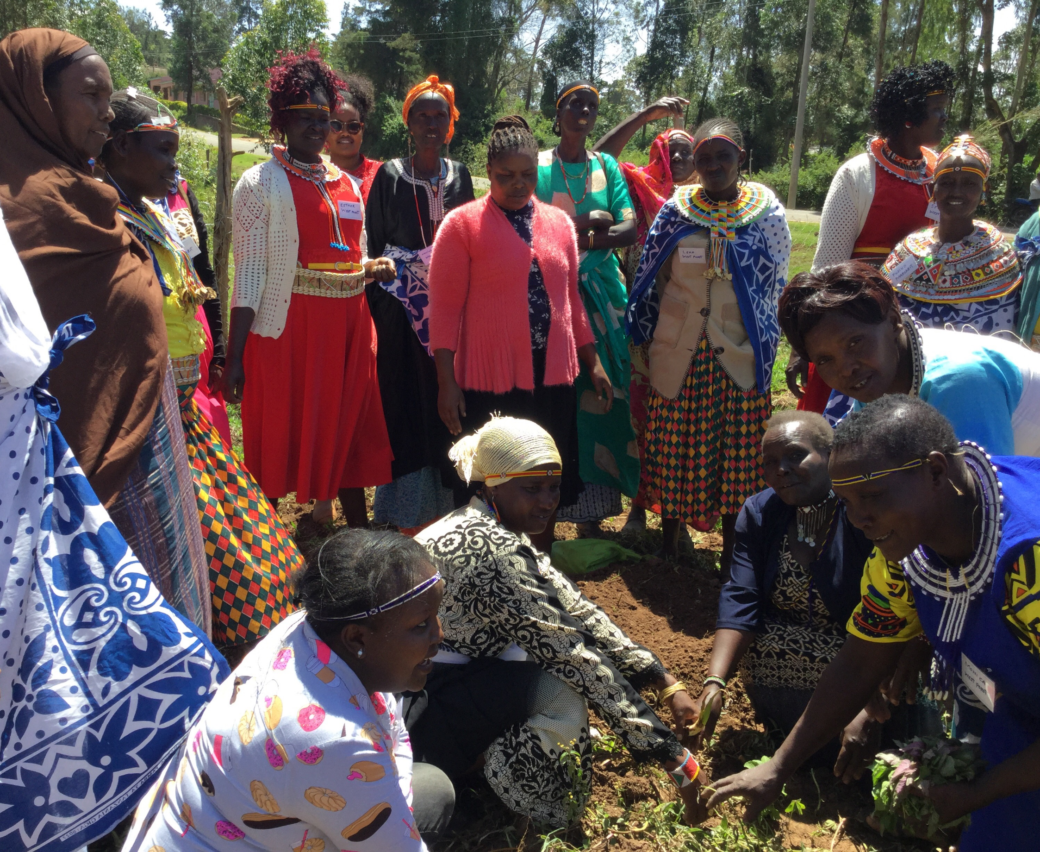
The Namunyak Lepolosi Women Group indigenous tree nursery business has inspired other women’s groups in Narok County to start their own nurseries. The trees are sold to schools and community members, and supports income generation for the women’s groups. Photo: Lucy Mulenkei
Diverse and secure income generation is vital to indigenous women in Kenya. In Narok County, women’s main economic activities are farming, small-scale beekeeping and tree nursery enterprises. The women’s groups have begun advising each other on different income generating opportunities including keeping poultry, traditional vegetable farming, fruit farming and bead making. Through such skill-sharing, the women’s groups are exchanging experiences on how to start and sustain their income generation and how to raise and manage capital.

A “choka” (traditional food store) in Naramam village, Pokot County, used by indigenous women. Photo: Edna Kaptoyo
Food sovereignty is key to climate resilience. The traditional food systems of indigenous communities in Kenya face numerous challenges such as access to clean freshwater. To address this and strengthen food security and climate resilience, communities in Pokot County are planning the restoration of traditional food practices such as traditional seed varieties, rainwater harvesting to support farming and planting, post-harvest preservation and storage, agroforestry with fruit trees and sustainable management of livestock pastures.

Indigenous women from Merigo and Isogargaro Women Group speaking at their County Commissioner’s office in Marsabit County. They highlighted issues of environmental conservation and linkages to peace and security. Photo: Merigo Women Group
The indigenous women’s groups are trying to address why women do not engage in local leadership and decision-making, and how they are prevented from doing so. Women face challenges in accessing public services since county development programmes do not reflect women’s needs, and public officers (who are mostly men) do not understand women’s issues. But by joining forces and paying visits to county offices as a group, women can make their demands, attend public county hearings and ensure that programmes reflect women’s issues.

Women from West Pokot, Marasabit and Narok Counties meeting together to skill-share and learn from each other for the development of their communities. Photo: Lucy Mulenkei
Already looking ahead, the women’s groups in West Pokot, Marsabit and Narok Counties are working beyond their own communities to enhance networking and communications with other women’s groups further afield. Having formed a network, they aim to implement joint projects on food sovereignty, environmental governance and other issues. Their objective is to strengthen the women’s movement at the local level and to influence county development agendas to include women’s priorities. They call for strengthening women’s advocacy networks at local and county level, with links to national level advocacy networks, ensuring that women’s voices can be heard at all levels of decision-making.
This photo essay is based on trainings facilitated by the Indigenous Information Network, an organisation based in Kenya, and member of the Global Forest Coalition, as part of the Women2030 Programme. During the trainings, 39 indigenous women’s organisations took part in sessions on implementing the Sustainable Development Goals (SDGs) through women’s participation in decision-making, food security, local development, land rights and sustainable livelihoods.
The Women2030 Programme is a coalition of five women and gender network organisations collaborating to realize the Sustainable Development Goals (SDGs) in a gender-equitable and climate-just way. Follow Women2030 on Facebook and Twitter.
The Global Forest Coalition is a worldwide coalition of 99 NGOs and Indigenous peoples’ organisations from 62 different countries striving for rights-based, socially just forest conservation policies. Follow the Global Forest Coalition on Facebook and Twitter.




